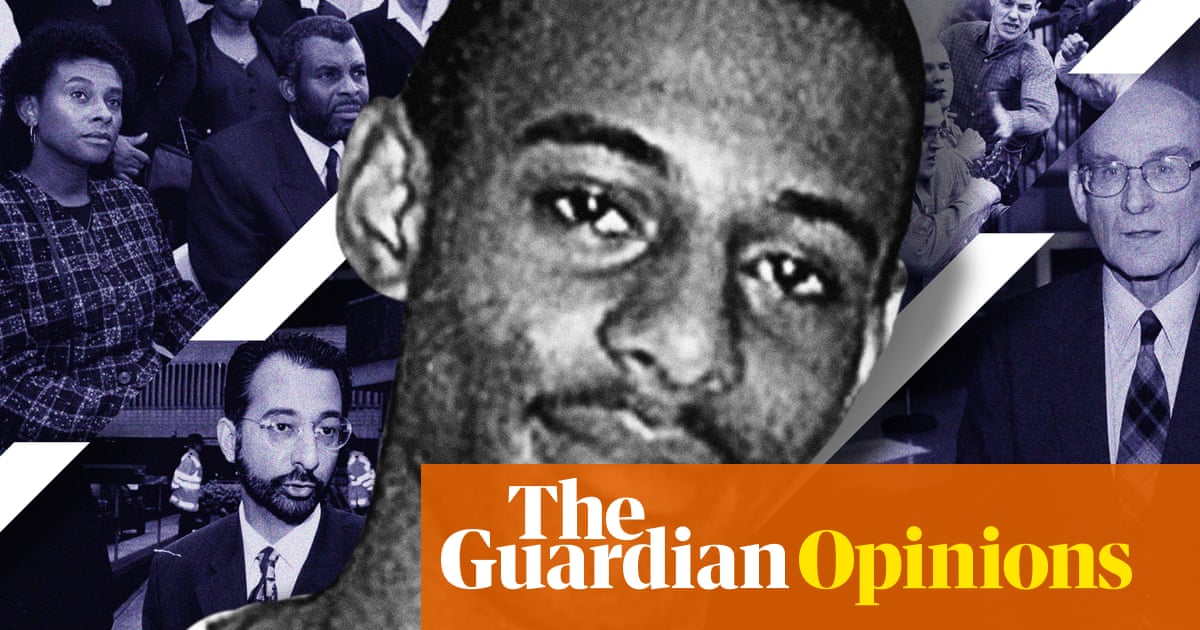
When Oliver Campbell’s lawyer first visited his client a quarter of a century ago, he recalls a prison officer pointing him towards a tall, shy man grooming a horse.
Despite serving a life sentence for murder, Campbell, who had severe learning difficulties, was so vulnerable that he was moved to an open prison at the earliest opportunity.
Describing a conversation at HMP Hollesley Bay in Suffolk, the miscarriage of justice lawyer Glyn Maddocks said a prison officer told him: “I’ve never said it before, but none of us here think that Oliver could possibly have done it, so good luck in trying to clear his name. I hope you’re successful.”
Campbell, 54, had been found guilty in 1991 of the murder of the London shopkeeper Baldev Hoondle. The conviction came after Campbell confessed to shooting Hoondle during the 11th of 14 “relentless” police interviews, many of which were conducted without a lawyer, and despite Campbell having an IQ of 73.
On Wednesday the appeal court quashed his conviction for murder and conspiracy to rob, bringing an end to what has been described as one of the longest miscarriages of justice in British criminal history. After nearly 34 years, Campbell said he could start his life “an innocent man”.
But the judgment led by Lord Justice Holroyde is not the kind of full-throated exoneration received by Andrew Malkinson last year, when Holroyde told Malkinson: “You can walk away a free man.” In Campbell’s case, the possibility of a retrial was even mooted before being turned down because of his vulnerability.
The appeal was allowed only on the narrow basis of fresh expert evidence suggesting there was a high risk that his confessions to police had been false. Expert witnesses told how Campbell scored “abnormally high” for acquiescence, with an “extreme tendency to just, when in doubt, say yes”.
Other evidence casting doubt on Campbell’s conviction, such as multiple statements by a man who admitted to being part of the robbery to the effect that his accomplice was someone else, were said to carry “very little weight”.
Campbell jokingly refers to himself as the BFG after Roald Dahl’s friendly giant. As well as being extremely tall, he is softly spoken and easily startled by loud noises. One friend observed to Maddocks that if a gun went off near him, he would likely “become a jelly on the floor”.
Campbell’s case raises similar concerns to Malkinson’s about the challenge faced by those trying to overturn convictions. Maddocks, who has largely represented Campbell pro bono, said: “The dice is so well loaded against people who want to fight a conviction. There’s no money and no assistance.”
The grey hairs of the lawyers themselves are also a testament to how long justice can take. Michael Birnbaum KC, who has also represented Campbell pro bono for nearly 25 years, is 77 and had been retired for a decade before coming back to represent him at the appeal court earlier this year.
Maddocks said the system for overturning convictions was “deeply flawed and very broken”, and showed little evidence of lessons learned. “If it was a plane crash, people would be looking at the black box and they would make sure that it won’t happen again. But in the criminal justice system, we never learn lessons.”
After Campbell’s first appeal failed, an application was made to the Criminal Cases Review Commission (CCRC) in 1999 to investigate and refer the case back for appeal. The decision took six years – and when it came, it was a rejection.
As with Malkinson, Campbell’s case was referred to appeal by the CCRC only in 2022 after being previously rejected.
The case illustrates how hard the Crown Prosecution Service fights to keep convictions, even when presented with concerning evidence about their safety. The CPS fought for a retrial when advised by appeal court judges that the conviction was not safe.
“How could they justify the resources when there are trials waiting for 2027 at the moment?” Maddocks asked. “I can’t see where the public interest is in that. The prosecution in this case should’ve thrown the towel in, but they doggedly opposed the appeal.”
A CPS spokesperson said: “The court of appeal rejected 17 grounds of appeal and these convictions were only quashed on the basis of new evidence providing more information about Oliver Campbell’s mental state when he confessed to murder. We respect the judgment of the court.”
A CCRC spokesperson said: “The CCRC referred Mr Campbell’s murder conviction in light of new evidence that his vulnerabilities had not been properly understood or explained at trial.”












